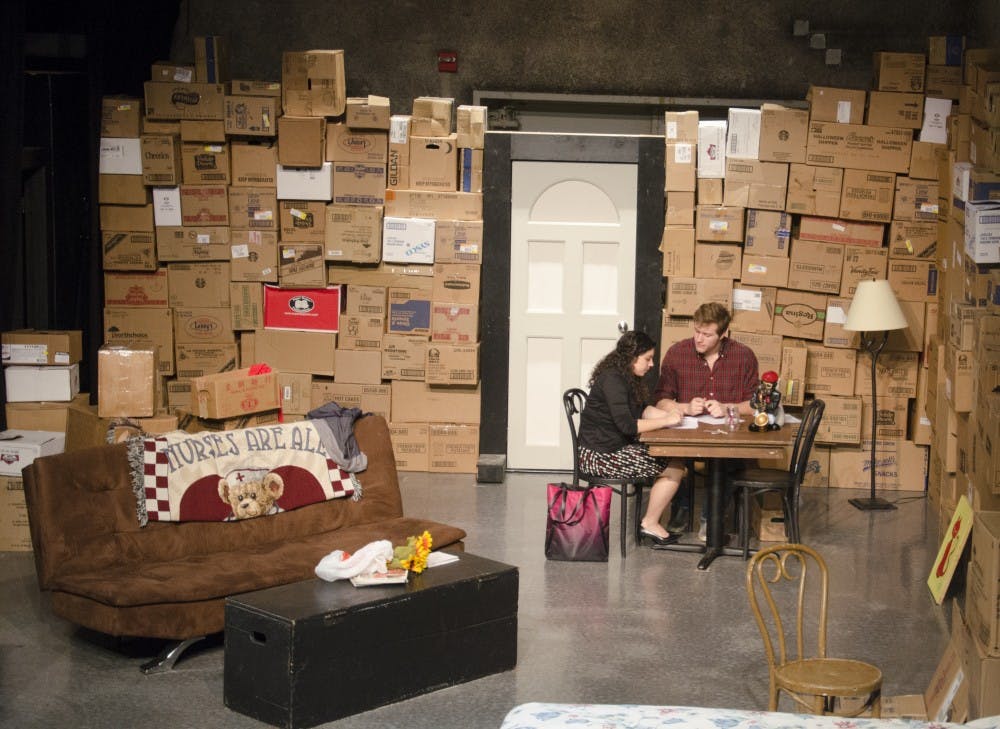What: On Tidy Endings
When: November 11-15 at 7:30pm; and November15-16 at 2:30pm
Where: Cave Theatre
Cost: General Admission, $6
With the use of nearly 300 boxes, one Ball State directing major hopes to convey a message through "On Tidy Endings."
In this Cave Studio production, student actors tell the story of what happens when a man in the 1980s dies of AIDS, leaving behind an ex-wife, a husband and a teenage son.
One way the director, junior directing major Nathaniel Thomas, has worked to make this production of the show different is through the use of boxes.
“I see the characters boxed in throughout the script, and my vision was to build a wall of boxes to reach all the way to the ceiling,” he said.
In order to accomplish this goal, Thomas reached out through his employment at Noyer, where he collected ten boxes each day. Then, during Fall Break, he went “dumpster diving” and came back with hundreds more. While the boxes might not reach the ceiling, they do create a symbolic environment in which the characters experience their individual journeys throughout the show.
Freshman musical theatre major Jacob Barnes plays Arthur, the husband of the deceased.
“Arthur is trying to cope with this loss by putting up a front while dealing with internal and external conflicts,” Barnes said. “He realizes that all he has left in the world are these awkward relationships in the show which are full of tension as he struggles to move on.”
All four of the actors in this show faced the challenge of honestly portraying a state of life in which they have never found themselves, from dealing with loss to having a son.
Sophomore acting major Jordan Rowe, who plays the son, Jimmy, expressed that the way his character is dealing with his situation is very different from how he would handle it in his life.
“My character chooses not to confront his struggles, and I’m not like that,” Rowe said. “He also has a strained relationship with his mom, and I’m very close with my parents.”
In addition to their personal struggles as actors, the show also tackles several of the challenges that people face throughout their lives. Senior acting major Meghan Baker, who plays the ex-wife Marion, points out that many of the struggles the characters face are among the most difficult in the human condition.
“The show for me is about how human beings deal with situations that are truly beyond them,” she said. “Illness, death and love are concepts we live with every day, but that no one really understands.”
Even though the time period of the 1980s isn’t often talked about by the youth of today, Thomas thinks this play demonstrates how that time is not so different from what society is experiencing today, from disease hysteria to the gay rights movement.
“During that time of American history, everyone was freaking out about AIDS, just as people are freaking out about Ebola right now,” he said. “The play also shows where we were with gay rights, where we are now and how we still have so far to go.”
These types of issues, along with how Barnes states that “this show is a true representation of how beautiful the human condition is,” make the play as relevant today as it was when it was written in 1993.
“With everything that’s going on in today’s world,” Baker said, “these issues need to be discussed, especially by young people.”





